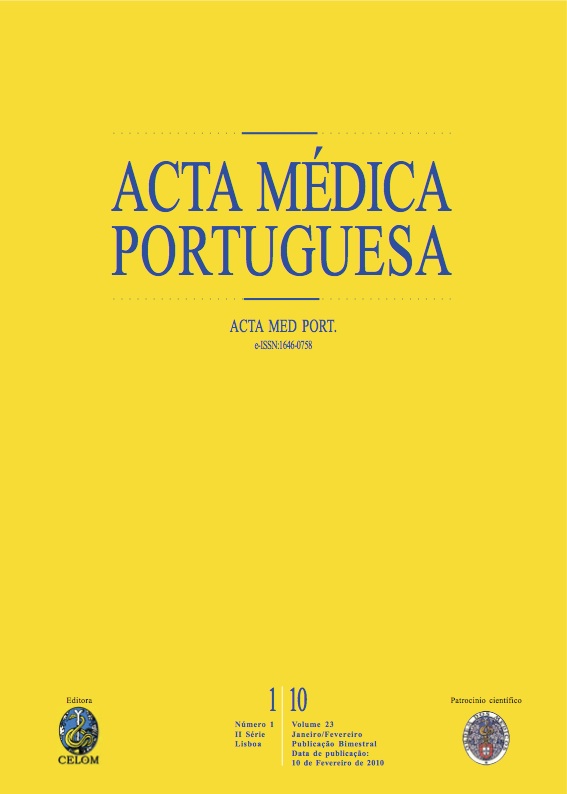Gastric carcinoma and chronic gastritis: epigenetic regulation of CDH1 (E-Cadherin), CDKN2A (p16INK4A), PTGS2 (COX-2) and EGFR genes through methylation.
DOI:
https://doi.org/10.20344/amp.600Abstract
The genetic and epigenetic alterations are being studied as one of the causes of gastric cancer (GC) progression and development. DNA methylation is an epigenetic alteration which leads to suppressor gene silencing and proto-oncogene activation, playing an important role in carcinogenesis. The histological types of gastric carcinoma have different genetic paths and the knowledge of the molecular bases of tumoral progression leads to diagnostic accuracy and attempted therapy. CDH1 (E-cadherin) and CDKN2A (p16(INK4A)) genes are thought to be tumoral suppressor genes and PTGS2 (COX-2) and genes are involved in tumour regulation and growth. In one hand, gene silencing as an epigenetic phenomenon, and in the other hand, gene expression enhancement due to possible demethylation, simultaneously, can facilitate carcinogénesis and tumoral progression. Our aim was to relate CDH1, p16(INK4A), COX-2 and EGFR genes DNA methylation with the several histological types of gastric carcinoma and chronic gastritis. We studied 55 formalin fixed paraffin embedded gastric biopsies: 35 were GC specimens (12 diffuse type, 15 intestinal type and 8 indeterminate type, according to Laurén's classification) and 20 samples had chronic gastritis (CG). The DNA was treated with sodium bisulfite after extraction and then performed Methylation Specific PCR (MSP). Statistical analysis was based on chi-square test and Exact Fisher's test. CpG island methylation was detected in 94% of the GC samples for CDH1, 91% for COX-2, 80% for p16(INK4A) and no methylation was detected in EGFR gene (0%). In CG, CpG island methylation was found in 100% for CDH1 and COX-2 genes, 90% for p16(INK4A) and 20% for EGFR. These results reveal significant differences in EGFR gene methylation distinguishing GC from CG (p < 0, 01), suggesting that gene demethylation leads to malignant transformation and favours the use of tyrosine-kinase inhibitors in its treatment. Genes COX2 e p16INK4A lower methylation in intestinal and diffuse types of GC, favours their different role in respective histogenesis.Downloads
Downloads
How to Cite
Issue
Section
License
All the articles published in the AMP are open access and comply with the requirements of funding agencies or academic institutions. The AMP is governed by the terms of the Creative Commons ‘Attribution – Non-Commercial Use - (CC-BY-NC)’ license, regarding the use by third parties.
It is the author’s responsibility to obtain approval for the reproduction of figures, tables, etc. from other publications.
Upon acceptance of an article for publication, the authors will be asked to complete the ICMJE “Copyright Liability and Copyright Sharing Statement “(http://www.actamedicaportuguesa.com/info/AMP-NormasPublicacao.pdf) and the “Declaration of Potential Conflicts of Interest” (http:// www.icmje.org/conflicts-of-interest). An e-mail will be sent to the corresponding author to acknowledge receipt of the manuscript.
After publication, the authors are authorised to make their articles available in repositories of their institutions of origin, as long as they always mention where they were published and according to the Creative Commons license.









